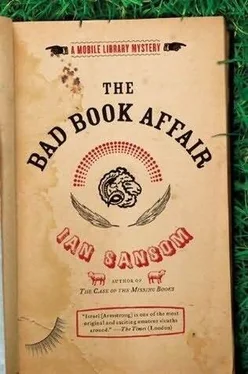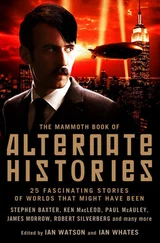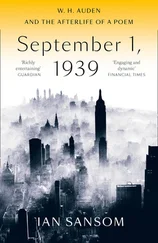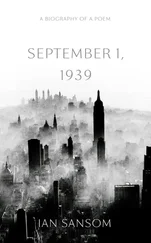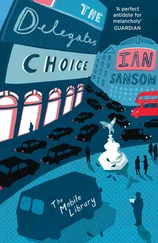“Ah, yes,” said Pearce. “Lepus…” Israel could see Pearce’s mind working, struggling, trying to remember. “Timidus hibernicus,” he announced eventually. “Michael Longley.”
“Sorry?”
“Poem.”
“I don’t know it, I’m afraid.”
“Fine poem.”
“Right.”
“His father was in the same regiment as my uncle.”
“Right.”
“Ypres. The mud.”
“Uh-huh.”
“You never forget the mud.”
“Right.”
“Rats,” said Pearce, wearily. “But how are you?”
Before Israel could answer, Pearce’s dogs, Picasso and Matisse, came in, made for Israel, and started enthusiastically licking his face and hands.
“Are they being a nuisance?” asked Pearce.
“No, no, not at all,” said Israel.
“Good,” said Pearce, and then he whispered very quietly to Israel, his eyes suddenly filling with tears, “They say I’ve dementia, you know. I’ve heard them.”
“I see,” said Israel.
“Stuff and nonsense!” said Pearce. “They’re trying to cart me off.”
“I’m sure that’s not-” began Israel, gently pushing the dogs away.
“I’m staying right here!” Pearce said, suddenly much more loudly, so that Joan could hear. “Tell that bloody woman! I’m not going anywhere. In the end…Nowhere. Staying. Leonard…”
“Leonard?” said Israel.
“Leonard Bast.”
“Right,” said Israel.
“You know what I’m talking about?” said Pearce.
“Yes,” lied Israel.
“Here!” shouted Pearce, with all his might. The dogs barked in response.
Israel looked over at Joan. She cast her eyes down, sadly.
“Right here! Do you…understand!”
“That’s OK, Pearce,” said Israel, soothingly. “I understand.”
“You’re all alone, aren’t you?” asked Pearce, suddenly quiet again.
Israel nodded.
“No sign of marrying?”
“No,” said Israel, “there’s…”
“You’re young?”
“I’m nearly thirty,” said Israel.
Pearce gave a harsh, faint little laugh, as though in pain.
“Alone,” said Pearce.
“You still have plenty of friends,” said Israel.
“No,” said Pearce gently. “Eventually…” His voice trailed off. “I wanted to ask you a question.”
“Ask away,” said Israel.
Pearce placed a hand on Israel’s arm. “The collection.”
“The collection?” said Israel.
“The books.”
“Yes,” said Israel.
“For the library,” said Pearce.
“I’m sorry, I don’t understand,” said Israel.
“I want the library,” said Pearce. “To have my books.”
There was a long pause. Israel could see Pearce struggling to stay on track with the conversation.
“Pearce?” prompted Israel.
“They say England’s changed,” said Pearce.
“Yes, I suppose it has.”
“Ireland…”
“Yes?” said Israel.
“The Glens,” said Pearce, who seemed to be having conversations in his own mind. “We’re very lucky.”
“Yes,” said Israel.
“Glenn Patterson. The coast road,” said Pearce.
“Yes,” said Israel.
“Finer than the Grande Corniche. And Jim McKillop. Finest fiddle player in Ireland. Have you seen the Book of Kells?”
“No,” said Israel.
“You must see the Book of Kells! My brother is at Trinity, he’ll take you to see the Book of Kells. All the magic people.”
Israel had no idea what he was talking about.
“Comedy of…” began Pearce.
“Errors?” said Israel.
“Manners,” said Pearce. “Do you know how many words there are in a pencil?”
“Sorry?”
“Forty-five thousand.”
“I’m not following you, Pearce, sorry.”
“In a magazine. It said. Forty thousand words in a pencil.”
“Doesn’t it depend on the size of the words?” said Israel.
“Very good!” said Pearce, laughing hoarsely. “Very good! Oh, you’ll go far, young man, mark my words.” And then, “The books!” he said suddenly-“words” having apparently brought him back to the books. “Keep them together.”
“Of course.”
“I trust you with the books.”
“I understand.”
“All of the paperwork has been done.”
“Good.”
“And there’s a book I’d like you to have.”
“No. No. I don’t need any books, Pearce.” Israel glanced nervously across at Joan.
“I…insist.” Pearce reached out a hand and closed it around Israel’s wrist.
“Very important. You know Dewey?”
“No, I don’t think so,” said Israel.
“Dewey. The…”
“Oh, the classification system…”
“Yes. Remind me. What are the…”
Israel recited the Dewey decimal system to Pearce. “General works. Erm. Philosophy and psychology. Religion. Social sciences. Language. Science. Technology. Arts and recreation. Literature. History and geography.”
“Philosophy,” said Pearce. “That’s it.”
“Right.”
“Go on then. Fetch! Fetch!”
Israel got to his feet, followed by the dogs, who’d obviously taken the command to heart, and started making his way along the shelves, which were-loosely-arranged by the Dewey system. Halfway down the library he came to a halt and called back to Pearce, who had closed his eyes again.
“I’ve found Philosophy, Pearce.”
“J,” said Pearce, dreamily.
“J?”
“J.”
“What am I looking for?”
“Dr. Johnson. Rasselas. Do you know it?”
“No, I don’t think I do.” Israel ran his finger along the shelf. “Got it!”
Israel took the book down and brought it over to Pearce. It was bound in leather with fine embossed lettering. The pages were musty, and the dust set Pearce to coughing-deep, deep coughing-and hawking, and then struggling for breath. His eyes welled up with tears again. His frail body was shaking with panic.
Joan hurried over. She held up his head and helped him hawk into a handkerchief.
“I think he needs a rest now,” she said.
“Yes, of course,” said Israel. “Sorry. I…”
“Israel’s going now, Pearce,” she said.
Pearce stared up at Israel, unable to find words. His eyes stared up at him-as if he was looking for something, searching for reassurance.
“Go on,” said Joan. “He needs rest.” Israel hesitated. “Please,” said Joan. “He’d rather you went.”
“If you’re sure.”
“Please,” said Joan insistently.
Israel glanced back at Pearce as he left the room: the dogs were sitting quietly by him, Joan was fussing over him. Like he was a child, or a small broken bird.
It was dark as Israel walked down the lane back to the Devines’ and there was a full moon, as though the scene had been carefully set for a theatrical performance. Normally, Israel didn’t respond to nature-he responded mostly to books, and to his own narcissistic impulses and needs-but tonight, brushing past the cow parsley and the whin bushes, and with the sound of his feet in the silence, it felt for a moment that he was outside himself and outside time, and that the whole of nature was somehow audible and available to him, and he was overcome by a feeling of intense love, and of loss-as though he was completely connected to the world and, simultaneously, completely and irrevocably cut off.
He paused before reaching the Devines’, in the little clearing by the big red barn, and stood in the bright moonlight and opened the book that Pearce had given him, turning to a page at random.
“That the dead are seen no more,” said Imlac, “I will not undertake to maintain, against the concurrent and unvaried testimony of all ages, and of all nations. There is no people, rude or learned, among whom apparitions of the dead are not related and believed. This opinion, which perhaps prevails as far as human nature is diffused, could become universal only by its truth: those that never heard of one another would not have agreed in a tale which nothing but experience can make credible. That it is doubted by single cavillers, can very little weaken the general evidence; and some who deny it with their tongues confess it by their fears.”
Читать дальше
Конец ознакомительного отрывка
Купить книгу
